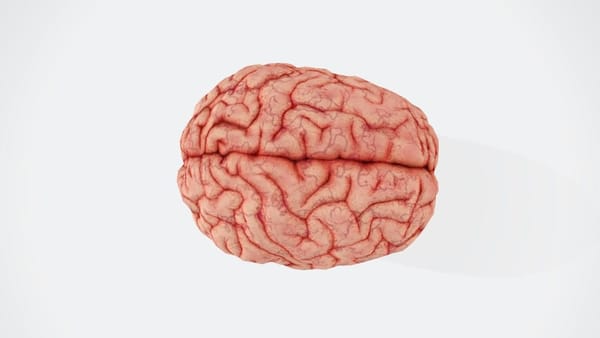Recent research has unveiled intriguing connections between type 2 diabetes and cognitive health, offering fresh insights into dementia risk and brain aging. Two groundbreaking studies have emerged, providing valuable clues about how diabetes management and lifestyle choices may influence long-term brain health. Let's delve into these findings and explore their potential implications for millions of people living with diabetes worldwide.
Key takeaways:
• Maintaining stable A1C levels over time may reduce Alzheimer's disease risk in diabetics
• A healthy lifestyle can potentially offset accelerated brain aging associated with diabetes
• Both prediabetes and diabetes are linked to increased brain age compared to chronological age
• Modifiable factors like physical activity, smoking cessation, and moderate alcohol consumption play crucial roles in brain health
The A1C stability-dementia connection
A study published in JAMA Network Open has revealed a fascinating link between hemoglobin A1C stability and dementia risk in individuals with diabetes[1]. Researchers introduced a novel measure called HbA1c time in range (TIR) to assess blood sugar stability over extended periods.
The study, which involved 374,021 veterans with diabetes, found that maintaining higher percentages of time (60% or greater) with A1C levels in target ranges was associated with reduced risks of developing Alzheimer's Disease and Related Dementias (ADRD). Conversely, having A1C levels predominantly below the target range significantly increased dementia risks.
Dr. Paul R. Conlin, the study's corresponding author, emphasized the importance of these findings: "Our results suggest that stable A1C levels within target ranges may be protective against cognitive decline, highlighting the potential long-term benefits of consistent diabetes management."
Lifestyle choices and brain aging in diabetes
Another groundbreaking study, published in the journal Diabetes Care, explored the relationship between diabetes, prediabetes, and brain aging. Using MRI brain scans from over 31,000 participants, researchers calculated brain age using machine learning models.
The findings were striking:
• Prediabetes was associated with brains appearing 0.5 years older than chronological age
• Diabetes was linked to brains appearing 2.3 years older than chronological age
However, the study also offered a ray of hope. Participants who engaged in high levels of physical activity, abstained from smoking, and practiced moderate alcohol consumption showed reduced gaps between brain age and chronological age, even in the presence of diabetes.
Abigail Dove, the study's lead author, explained: "Our research indicates that lifestyle can compensate against the detrimental influence of diabetes on brain health. Importantly, all the lifestyle factors we considered – smoking, drinking, physical activity – are readily modifiable, providing actionable strategies for people with diabetes to improve their cognitive health."
Unraveling the biological pathways
To understand these findings, it's crucial to explore the potential biological mechanisms linking diabetes to brain health. Dr. Raj Dasgupta, chief medical advisor for Fortune Recommends Health, offers insights into this complex relationship:
"High blood sugar levels over time can damage blood vessels in the brain, leading to reduced blood and oxygen supply to brain cells. This damage can cause cognitive decline and increase the risk of vascular dementia."
Additionally, insulin resistance, a hallmark of type 2 diabetes, may affect brain cells and is associated with a higher risk of Alzheimer's disease. Other factors contributing to increased dementia risk in diabetics include:
• Chronic inflammation
• Oxidative stress
• High blood pressure
• Obesity
Practical implications for diabetes management
These studies underscore the importance of comprehensive diabetes management that goes beyond blood sugar control. Dr. Akhil Shenoy, an endocrinologist and medical advisor at Aeroflow Diabetes, recommends the following strategies to reduce dementia risk in people with type 2 diabetes:
• Maintain normal blood pressure and blood sugar levels
• Achieve and maintain a healthy body weight
• Engage in regular physical activity (at least low to moderate levels)
• Avoid tobacco use
Nutritional interventions can also play a crucial role. Angel Luk, RD, a registered dietitian and nutritionist, suggests:
• Reducing alcohol intake
• Increasing consumption of fiber-rich foods (whole grains, vegetables, and fruits)
• Implementing practical stress management techniques
Looking ahead: Future research and potential interventions
While these studies provide valuable insights, they also highlight the need for further research. Randomized controlled trials are necessary to confirm the findings and explore potential interventions that could mitigate cognitive decline in individuals with diabetes.
Dr. Clifford Segil, a neurologist at Providence Saint John's Health Center, emphasizes the importance of proactive diabetes management: "People with diabetes who monitor their glucose levels and use medications are more likely to avoid organ damage, including kidney damage, nerve damage, and vascular dementia."
As the global prevalence of both diabetes and dementia continues to rise, understanding the intricate connections between these conditions becomes increasingly crucial. By focusing on comprehensive diabetes management, lifestyle modifications, and emerging treatment strategies, we may be able to significantly impact the trajectory of cognitive health for millions of people worldwide 🧠
Stay informed about the latest developments in diabetes and brain health research by following our updates. Share your thoughts and experiences related to managing diabetes and maintaining cognitive function in the comments below.
References:
- JAMA Network Open: [Link to study]
- Diabetes Care: [Link to study]
Citations:
[1] https://www.ncbi.nlm.nih.gov/pmc/articles/PMC10011899/
[2] https://www.ncbi.nlm.nih.gov/pmc/articles/PMC10615478/
[3] https://www.ncbi.nlm.nih.gov/pmc/articles/PMC11092065/
[4] https://openarchive.ki.se/xmlui/bitstream/handle/10616/39082/thesis.pdf?sequence=1











Member discussion